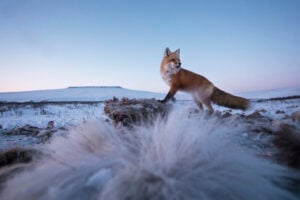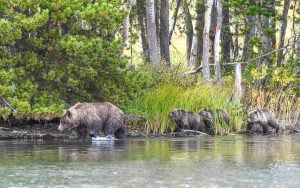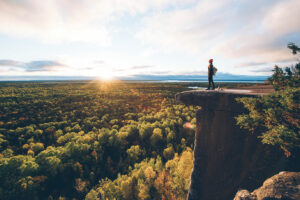
Wildlife
Do not disturb: Practicing ethical wildlife photography
Wildlife photographers on the thrill of the chase — and the importance of setting ethical guidelines
- 2849 words
- 12 minutes
This article is over 5 years old and may contain outdated information.
Travel

If you’ve ever dreamed of taking photos like the pros, or simply want the opportunity to see the sort of things the pros do, a photo vacation may be for you. But before you embark on any phototourism adventure, you’ll want to do some serious research. As a wildlife and photo specialist tour guide in Canada’s subarctic, I’ve seen my share of “unhappy campers”: people who had no idea what they’d signed up for. Here are seven questions to ask yourself and the tour company to ensure the right fit for you.
1. Tour or workshop?
Tours offer plenty of opportunities to shoot, using an array of different skills for a special area of interest, with a minimal learning component. Workshops generally focus on learning specific skills or align with a specific topic, and may or may not have a practical shooting component.
2. Is the cost all-inclusive (eg. travel, meals, accommodations, etc.) or not?
Are there other fees? How much are you prepared to spend, and do other options exist? Tours during off-peak and shoulder seasons are often available at a lower cost, but be sure to consider what you want to get out of your tour before booking. For example, if you want to see polar bears in Churchill, Manitoba, your chances are best during the high season. If you’re more interested in birds and beluga whales, skip the high season and visit in summer to save some cash.
3. What do you hope to accomplish?
Do you hope to learn specific skills, or take photos with little to no instruction? Do you prefer a structured itinerary with little room for choice, or do you prefer the flexibility of a choose-your-own-adventure style tour? Structure is not for everyone, but neither is flexibility, so be sure to ask and choose wisely.
4. What’s the expected skill level?
Find out what equipment is recommended and/or required, and the typical skill level of participants. You are unlikely to have much fun with your camera phone if the others on your trip have DSLRs with 500mm lenses. Stay within your level of expertise for the sake of yourself and your fellow phototourists. Also consider the conditions and prepare for them. If you’re going to visit the Great Bear Rainforest in the early summer or spring, guess what? It is probably going to rain. A lot. Find out what sort of clothing and gear is recommended, and whether or not it’s provided by the tour company.
5. How many people will be involved?
Do you prefer a more intimate setting with few other guests, or are you comfortable with larger crowds?
6. What do other people say about the tour?
Read reviews about the company, and learn from others experiences. If you can’t find reviews easily, ask the tour company if they can put you in touch with past participants and get a testimonial yourself.
7. Will you be compatible with your guide?
A skilled photo guide will have all your best interests at heart to ensure the best possible experience for you. There’s nothing wrong with a “green” guide; find out what they did before and what brought them into guiding (you might be surprised at what you learn). Also, look at your guide’s photography — if it doesn’t tickle your fancy, it’s unlikely her or his tour will, either. Put yourself first and find someone else.
Jessica Finn is the photo editor of Canadian Geographic and a photo specialist tour guide at Frontiers North Adventures.
Are you passionate about Canadian geography?
You can support Canadian Geographic in 3 ways:

Wildlife
Wildlife photographers on the thrill of the chase — and the importance of setting ethical guidelines

Travel
The new movement building flourishing tourism hubs across Canada – one sustainable example at a time

People & Culture
These 10 members of Canadian Geographic’s online Photo Club are making waves with their unique perspectives on Canadian wildlife and landscapes

Travel
Un nouveau mouvement créateur de pôles touristiques florissants dans tout le Canada – la durabilité, un exemple à la fois